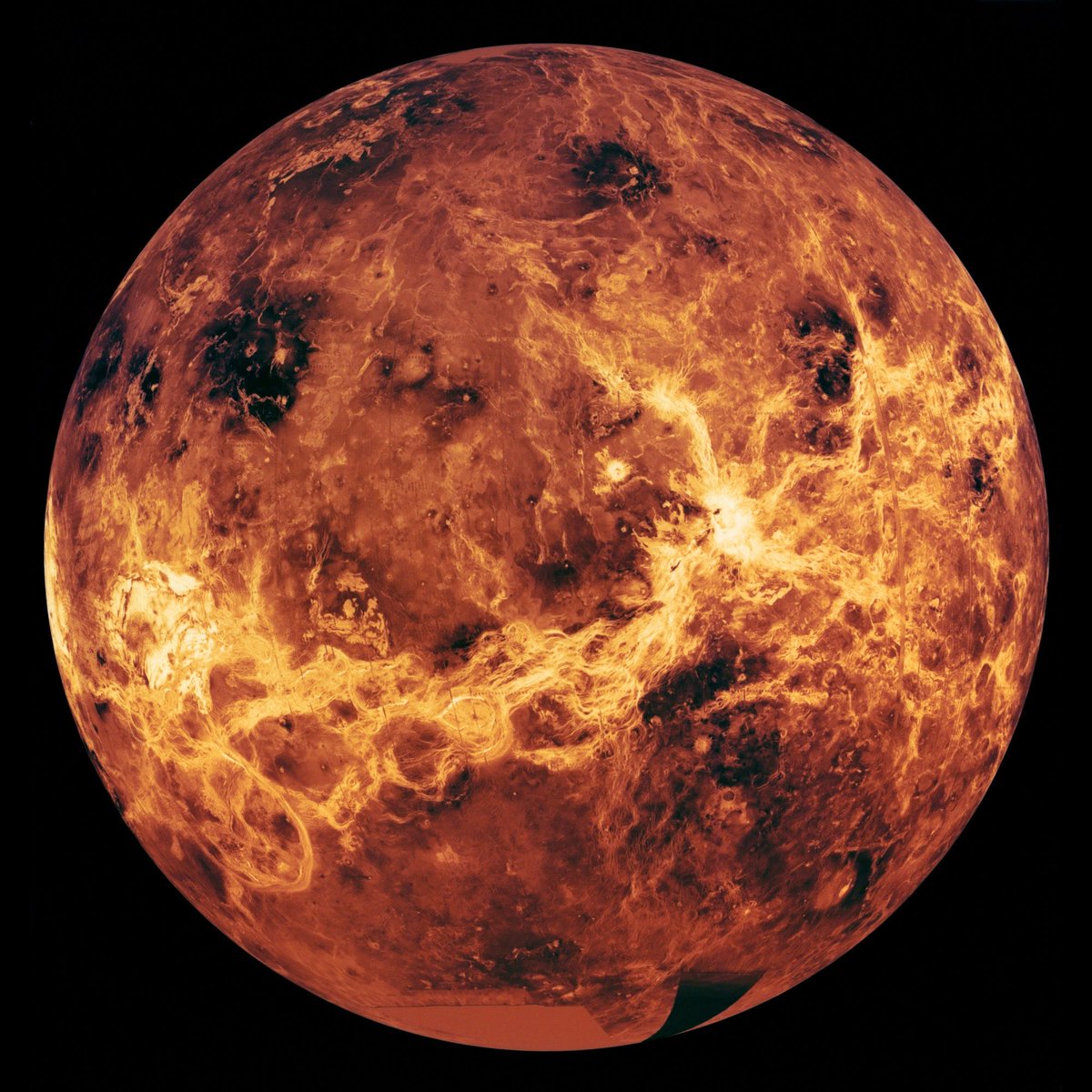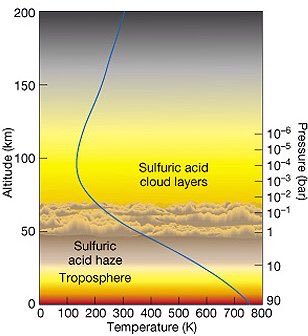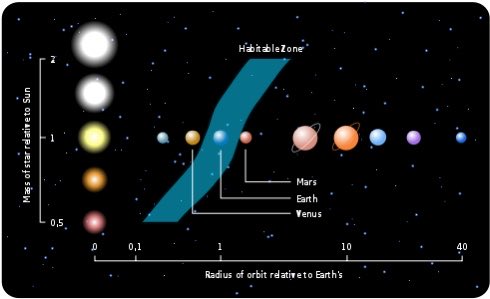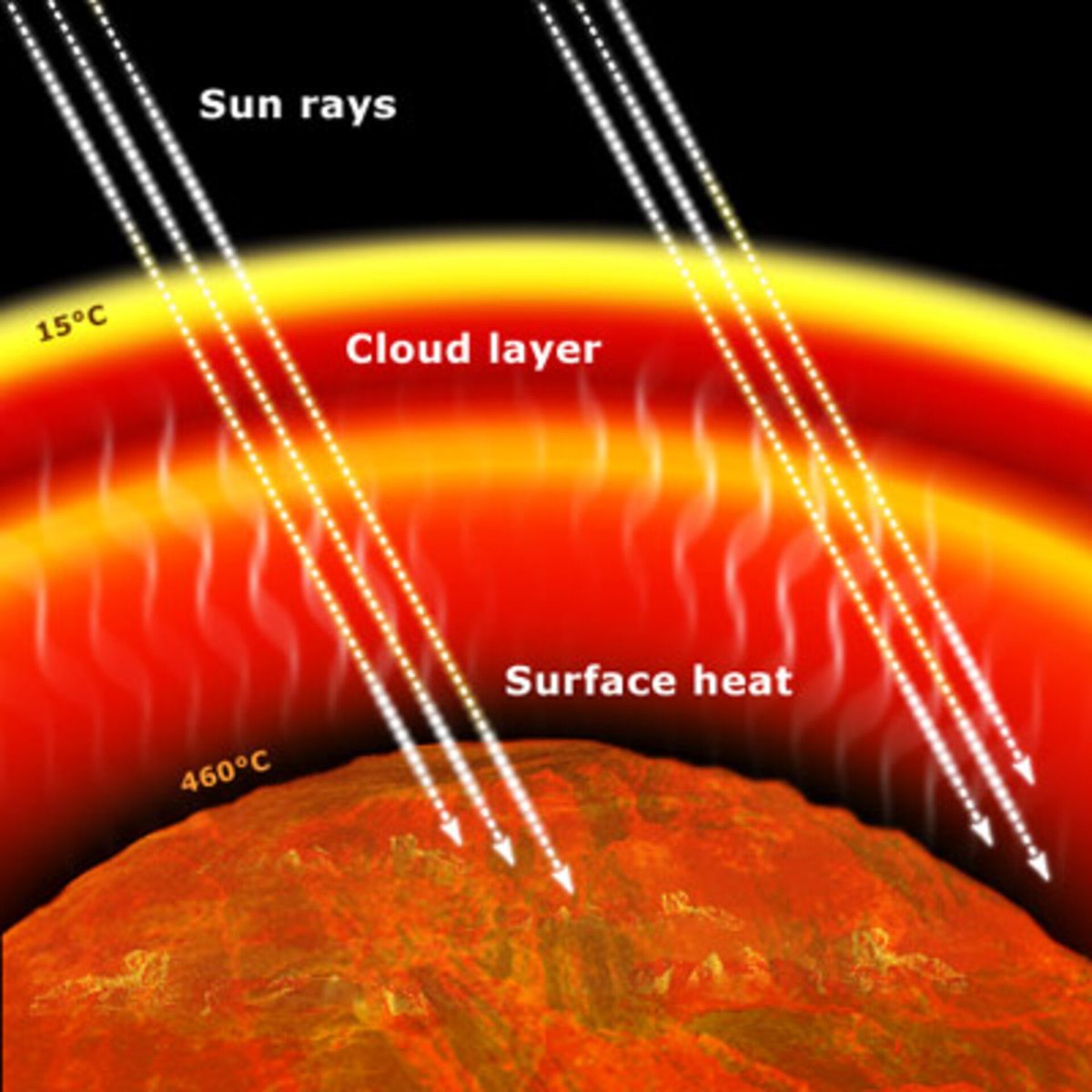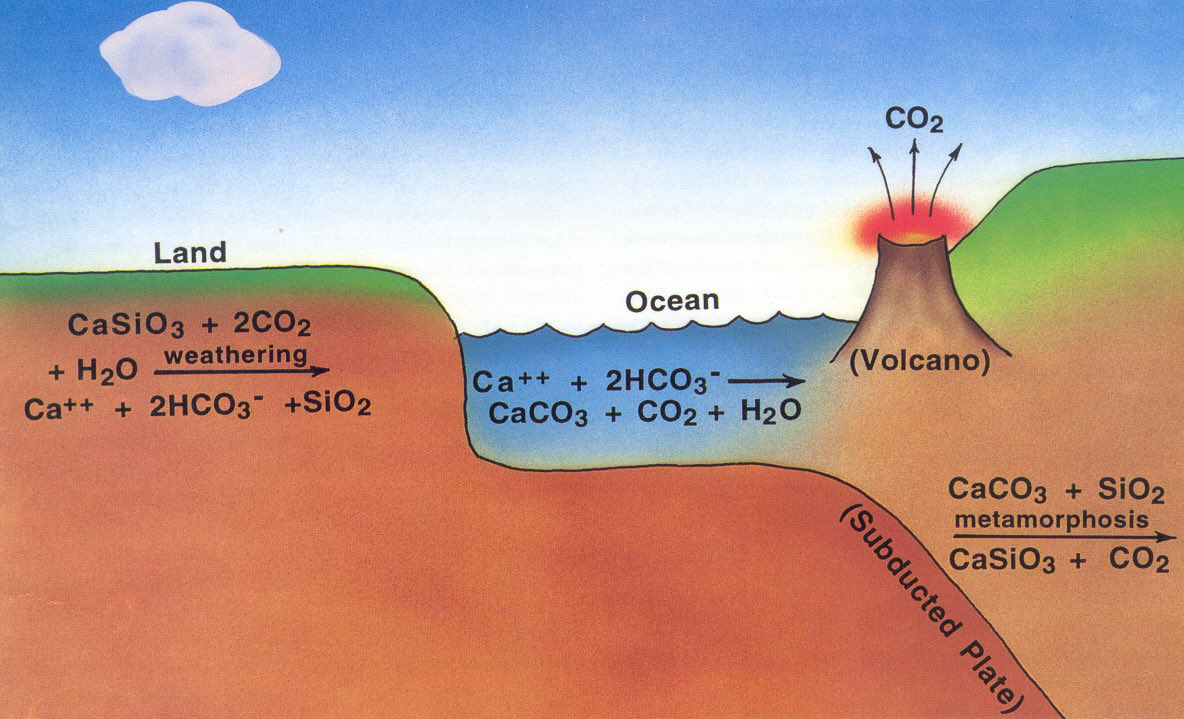Welcome to Space Facts Saturday!
Today our topic is Venus... what the hell?


The Venus that we know of today is NOT the same Venus from over 700 million years ago. The planet was almost unrecognizable back then. It is believed that before Venus became Hell, it had...
(1)
Today our topic is Venus... what the hell?



The Venus that we know of today is NOT the same Venus from over 700 million years ago. The planet was almost unrecognizable back then. It is believed that before Venus became Hell, it had...
(1)
a stable climate for about BILLIONS of years! So what caused our “sister planet” to become like this? It is believed that a resurfacing event completely altered the planet’s landscape. Based on scientists who have looked into the planet’s past, it seemed the planet had...
(2)
(2)
liquid water on its surface, plate tectonics, and a stable atmosphere with Earth-like temperatures. The event that “killed” the planet was something large that filled the atmosphere with a huge amount of gas, which could not be absorbed by the rocks on the surface.
(3)
(3)
So far, the best approximation that scientists have come up with is that the carbonate-silicate cycle (a process in which carbon dioxide is absorbed into rocks) was disrupted after intense volcanic activity took place on the planet’s surface.
(4)
(4)
When the Sun was younger, it was smaller and fainter, so Venus received much less solar energy than it receives now. In fact, Venus was in the habitable zone, which is why it was much more Earth-like (and may have even contained life). However, when the Sun got bigger...
(5)
(5)
and brighter, the habitable zone moved outward to where Earth is. This is when things took a turn for Venus. Since the Sun got bigger, temperatures started to rise on the planet’s surface. This cause the oceans to evaporate and deposit a large amount of water vapor...
(6)
(6)
into the atmosphere. Water vapor is known to trap heat very well, which further increased the planet’s surface temperature. This cycle continued with oceans evaporating and water vapor entering the atmosphere. Venus had turned into a runaway greenhouse, with all of the...
(7)
(7)
water vapor in its atmosphere trapping as much heat as possible, and ending the possibility of life being able to thrive on the planet. Without its oceans, all plate tectonics came to a halt, which locked everything in place. Plate tectonics play a large role in regulating...
(8)
(8)
the amount of carbon dioxide in the atmosphere. With no plate tectonics around, the carbon would be unable to bind to the elements in the dirt and rocks, which eventually get buried far beneath the surface. Once they are beneath the surface, plate tectonics would cause...
(9)
(9)
plates to rub against each other and sink below one another (subduction). Without plate tectonics, the carbon that was trapped in the dirt and rocks slowly out gassed or was dumped out in massive volcanic events. Basically, once the oceans evaporated, the carbon began to...
(10)
(10)
take over the atmosphere. With time, the water vapor in the atmosphere got hit with enough sunlight to break it apart, sending the hydrogen into space. Once that happened, the carbon took its place. As the atmosphere grew thicker, this just continued worsening surface...
(11)
(11)
conditions. Venus had now become a hellscape, the planet that we are more familiar with. Another thing is that the atmosphere might have even had enough drag to LITERALLY slow down the rotation of the entire planet itself, which would have given it its present day rate...
(12)
(12)
of rotation. Once this was all over with (which would have taken over around 100 million years or so), the potential for any future life to arise on Venus was over, thus ending the tragic story of how Venus came to be this way.
(13)
(13)
Another thing to consider with this story is the fate of our own planet. The Sun has not stopped aging, and in a few billion years, it will have used up all of its fuel, and will start to grow once again, becoming a red giant. Will the habitable zone move outward again?
(14)
(14)
Will Earth become the same as Venus is now? There are many questions to ask as we study the past of the planets in our Solar System. Hopefully, when (and if) we send a rover to Venus, we can find some more clues as to what exactly the event was that triggered its demise.
(15)
(15)
Hope you enjoyed! I know it was a little sad, but I enjoyed researching this topic! Let me know what you think! 
The extended version of the thread is on my blog too! I discuss more things about the implications for Earth as well as share more detail. https://jaz21693.wixsite.com/mysite

The extended version of the thread is on my blog too! I discuss more things about the implications for Earth as well as share more detail. https://jaz21693.wixsite.com/mysite

 Read on Twitter
Read on Twitter